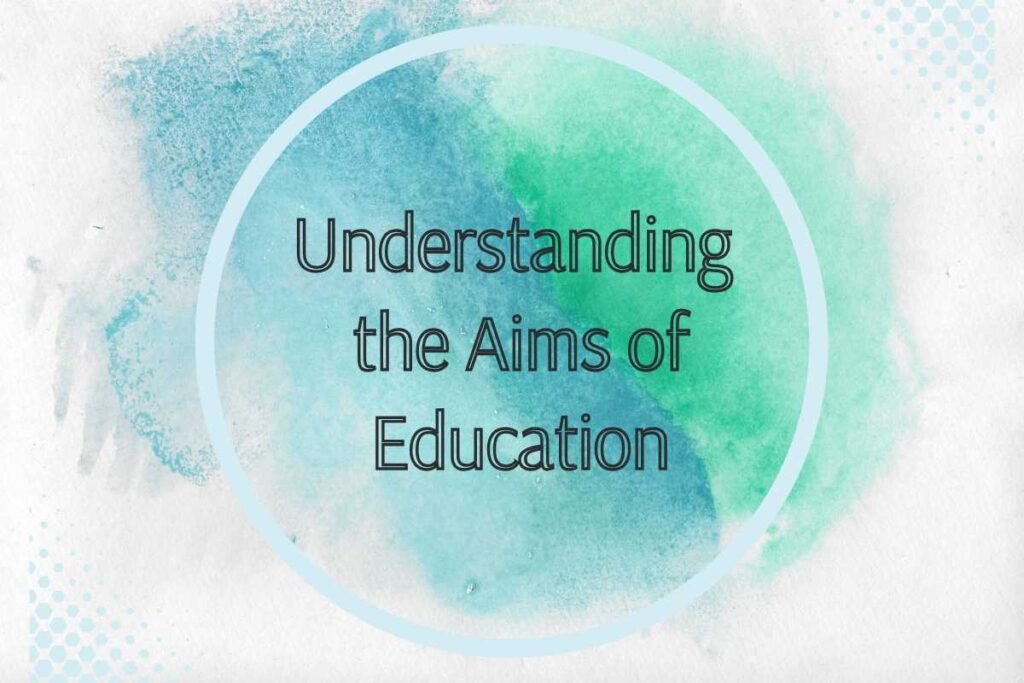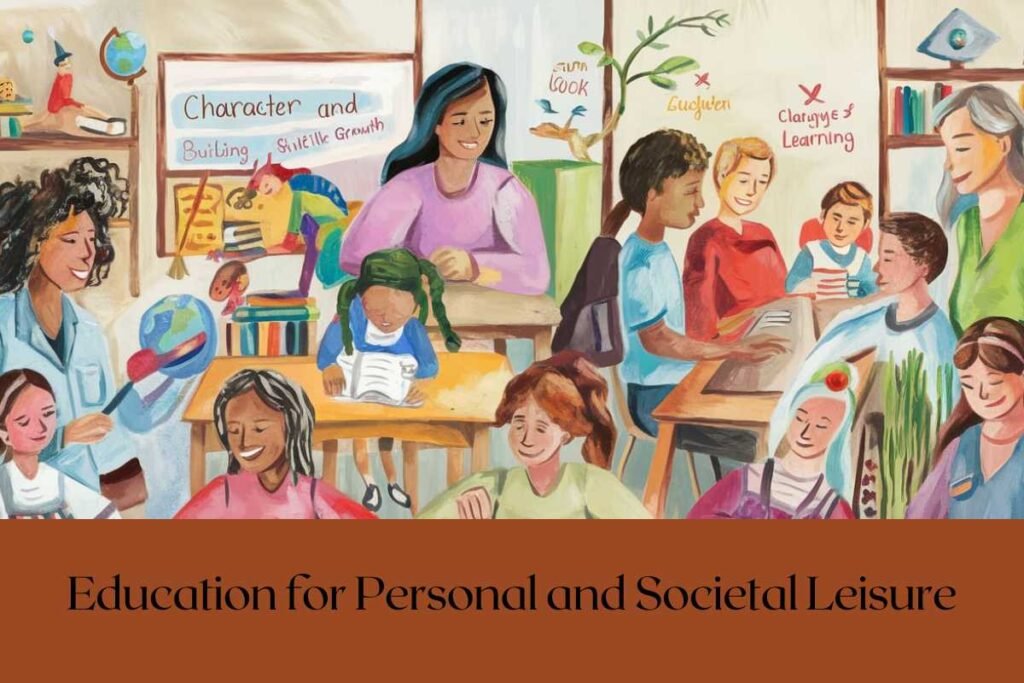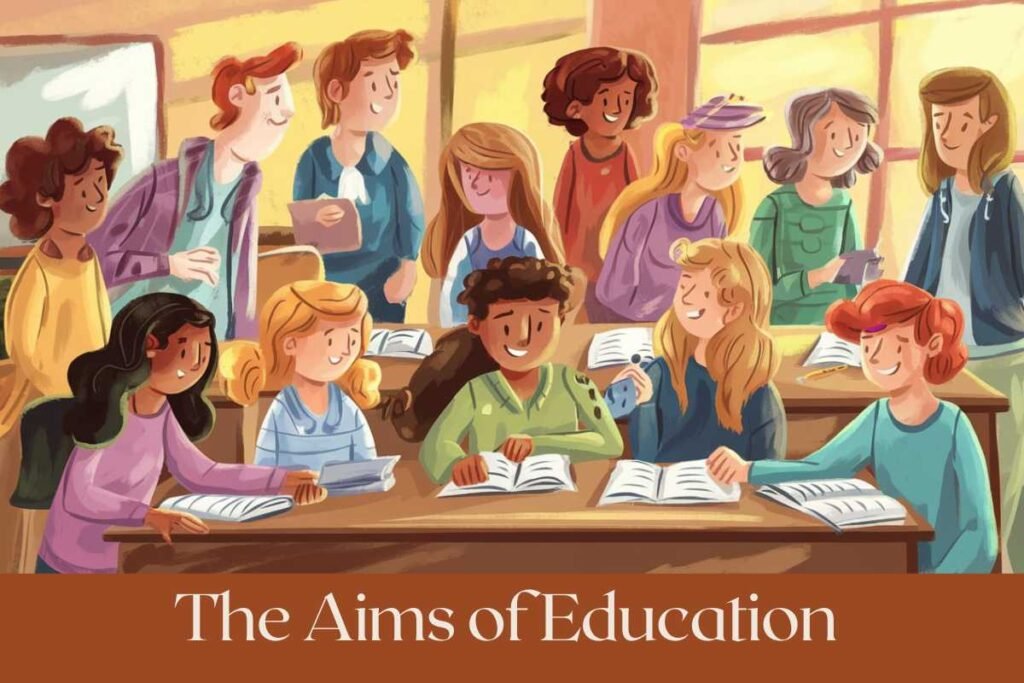The aims of education serve as the guiding principles that shape how and what we learn throughout our lives. At their core, they outline the fundamental objectives of imparting knowledge, fostering personal growth, and preparing individuals to become productive members of society.
Whether through traditional or modern educational approaches, understanding these aims helps us build systems that cater to both individual and societal needs. From intellectual and moral development to vocational training, these aims play a pivotal role in shaping the course of our lives.
This article explores the various aims of education, their importance, and their influence on educational philosophy and practice.
Understanding the Aims of Education

The primary aim from the aims of education is to empower individuals to reach their fullest potential. This process includes intellectual, physical, and moral development, allowing people to navigate life’s challenges with awareness and empathy.
The American Institute of Medical Sciences & Education (AIMS Education) exemplifies institutions that align their programs with these fundamental objectives, demonstrating their commitment to nurturing capable professionals.
Difference Between Aims of education and Objectives of Education
While aims of education provide a broad vision, objectives offer specific milestones to achieve these aims. Aims focus on the overall development of individuals and society, while objectives are measurable steps that contribute to achieving these overarching goals.
Vocational Aims of Education
Education prepares students for future careers by equipping them with necessary skills, knowledge, and hands-on experience.
This vocational focus ensures individuals can contribute to society while also achieving personal success. Essentialism in education places particular emphasis on foundational skills necessary for vocational competence.
Aims of Essentialism in Education
Essentialism aims to provide a core body of knowledge that every student must learn, emphasizing critical subjects that build a strong foundation. This approach ensures a disciplined, knowledgeable society capable of adapting to modern challenges.
Fostering Moral and Character Development

One key aim of education is moral development. By nurturing values such as integrity, compassion, respect, and courage, education shapes individuals who contribute positively to society. Figures like Mahatma Gandhi and Swami Vivekananda emphasized character-building as an integral part of learning.
Total and Harmonious Development
The aims of traditional education often focus on the holistic growth of individuals, encompassing intellectual, physical, social, and spiritual dimensions.
Harmonious development nurtures a balanced personality, ensuring all aspects of a child’s potential are fully realized.
Promoting Citizenship and Social Responsibility
Education fosters good citizenship by instilling a sense of duty and respect for diverse ideas and perspectives. By teaching students their rights, responsibilities, and the importance of community service, the aims of education contribute to a more cohesive and just society.
Cultural, Personal, and Community Growth
Education bridges personal ambition and social welfare, creating synergy between individual development and collective progress. Through aims of education, learners are encouraged to respect cultural diversity and use their talents for societal betterment.
Education for Personal and Societal Leisure

Proper use of leisure, facilitated by education, promotes creativity, emotional stability, and productivity. Students learn to engage in meaningful activities that benefit both themselves and their communities.
Conclusion
In summary, the aims of education encompass a wide range of goals aimed at the holistic development of individuals.
From intellectual growth and personal development to moral and vocational training, education serves as a cornerstone for building a knowledgeable, ethical, and adaptable society.
By understanding and refining these aims, we can create learning systems that cater to evolving societal needs while honoring foundational principles.
Whether through traditional or modern approaches, the ultimate aim remains consistent: empowering individuals to lead fulfilling, responsible, and impactful lives.
FAQs
What are the main aims of education?
The primary aims of education include holistic development, fostering moral and character growth, promoting good citizenship, and preparing individuals for careers.
How do the aims of education differ from its objectives?
Aims refer to broad goals like personal growth, while objectives are specific steps or outcomes to achieve these goals.
What is the role of aims in essentialism in education?
Essentialism focuses on core knowledge and skills, aiming to provide a disciplined, well-educated society ready for future challenges.
What are 10 aims of traditional education?
Traditional education aims at intellectual, moral, spiritual, cultural, vocational, physical, social, character, emotional, and creative development.
How does education promote citizenship?
Education instills a sense of responsibility, teaches respect for diverse perspectives, and encourages active participation in society.
What is the vocational aim of education?
The vocational aim focuses on preparing individuals with the skills and knowledge required for specific careers and job readiness.
Why is moral development an important aim of education?
Moral development shapes individuals to become ethical, compassionate, and responsible members of society, fostering positive values.
How do traditional education aims differ from modern aims?
Traditional aims focus on holistic and disciplined growth, while modern aims emphasize adaptability, critical thinking, and technology-driven skills.







